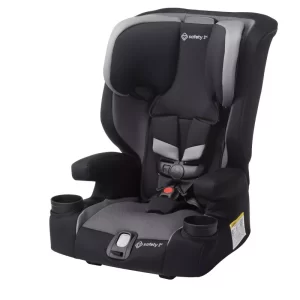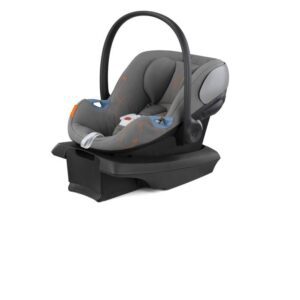Passenger Airbag Deployment in the IIHS Moderate Overlap Test, 1995-2007
On most of today’s vehicles, the passenger airbag will not deploy if the passenger’s seat is empty. In the IIHS moderate overlap test, only the driver’s seat is occupied, so if a vehicle has an automatic passenger airbag cutoff, the passenger airbag should not deploy. If, like most older vehicles, it doesn’t, both frontal airbags will deploy.
On more recent tests, IIHS deactivates the passenger airbag themselves if the vehicle they are testing is one of the rare vehicles made today that doesn’t have an automatic cutoff. The vast majority of these vehicles are made by Chrysler, now called Stellantis US, who makes the Chrysler, Dodge, Jeep and Ram brands. In the real world, if someone crashes a 2013 Dodge Dart, for example, the passenger airbag will inflate even if the only thing occupying the passenger’s seat is thin air. But when IIHS tested this car, the passenger airbag did not deploy, because they deactivated it to keep it from obscuring certain camera views. This practice was put into place after the time period covered by this post. A 2009 Dodge Journey that I saw tested on July 28, 2009 inflated its passenger airbag, so they didn’t start manually deactivating passenger airbags until some time after 2009.
That means that, for the years this post covers, the airbags deployed in this test in the same way that they’d deploy in the real world.
1995: 100%. 14 of 14 vehicles tested deployed their passenger airbag.
1996: 100% (16 of 16)
1997: 89% (17 of 19)
1998: 100% (19 of 19)
1999: 93% (25 of 27)
2000: 95% (19 of 20)
2001: 77% (17 of 22)
2002: 93% (25 of 27)
2003: 89% (16 of 18)
2004: 48% (10 of 21)
2005: 25% (6 of 24)
2006: 6% (1 of 16)
2007: 4% (1 of 23)
From this graph, we can see that although automatic passenger airbag cutoffs first came out in the mid-1990s, most vehicles didn’t get them until the mid-2000s. No vehicles that IIHS tested in 1995 or 1996 came with one. From 1997-2003, only the occasional vehicle had one; 91% of vehicles (138 of 152) tested during this span still inflated their passenger airbag in this test, with the percentage varying relatively little during the time span.
Of the 14 vehicles tested that had an automatic passenger airbag cutoff in 1997-2003, 9 were European luxury cars. A 2001 Lexus LS, a 2003 Lincoln Town Car, and 3 Hyundais rounded out the lineup: a 1999 Sonata, 2001 Elantra, and 2002 XG350.
Most models got an automatic passenger airbag cutoff switch some time between 2004 and 2006, just ahead of the NHTSA advanced airbag requirement that went into effect with 2007 models. The only 2007-model vehicle tested to inflate its passenger airbag was the Jeep Grand Cherokee, a Chrysler product.
Keep in mind that because most vehicles IIHS tests are redesigned for that model year, the percentage of vehicles they test with advanced airbags will likely be higher for these years than the vehicle fleet as a whole. A vehicle freshly redesigned for 2004, for example, may have went ahead and included the cutoff with the redesign, while, say, an older design in production in 2004 may have waited until a redesign in 2005 or 2006 to include the cutoff.
There were quite a few surprises in the list. Hyundai’s early adoption of these cutoffs was one, but perhaps more surprising were the vehicles that didn’t have cutoffs. The sole 2006 vehicle to inflate its passenger airbag was the Lexus IS, a newly-redesigned luxury car; what makes this even more baffling is that a Lexus LS from 2001, firmly in the era where such cutoffs were rare, had one. The 2007 and later IS had the cutoff. The Acura TSX and TL were both tested in 2004, the first year of their design cycles, and both of their passenger airbags inflated; both got a cutoff for 2005. The 2005 Cadillac STS, another newly-introduced luxury car, also inflated its passenger airbag; it got the cutoff in ’06.
Note: in 1996, two vehicles tested were equipped with only a driver airbag. These vehicles were excluded from the analysis. Although the 1998 Chevy S-10 did not deploy its passenger airbag in the test, it came with a manual on-off switch from the factory. Since this switch was typically kept in the on position on other vehicles so equipped, the S-10 was counted as if the passenger airbag had inflated.






